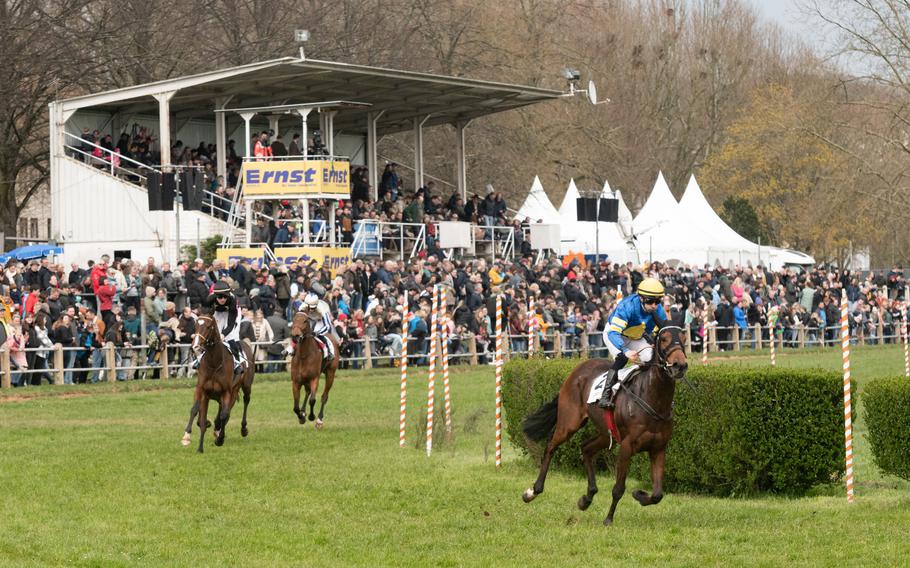
Jockeys compete at the historic grass racetrack in Zweibruecken, Germany, April 16, 2023. (Phillip Walter Wellman/Stars and Stripes)
The southwestern German town of Zweibruecken has been associated with horses for centuries.
In the mid-1700s, a duke who presided over the area began breeding a type of horse for military and courier work. The popular Zweibruecker, as it was called, would eventually gain admiration from Prussia’s Frederick the Great and Napoleon Bonaparte of France.
Some years later, the town started to hold horse shows. It also was among the first in Germany to stage organized horse races, which it did from at least 1821, according to historical documents.
Today, horse enthusiasts can find related activities in the town throughout much of the year.
Zweibruecken’s large grass racetrack, or grasrennbahn, is unique in that it’s virtually in the center of town, not far from several U.S. military installations.
It hosts two race days per year that include harness races, in which horses pull two-wheeled carts that carry riders, and others in which jockeys ride on horseback.
Contests are spaced about a half-hour apart, which might seem like a long interval, but the time passes quickly.
During the breaks, bartenders are busy pouring sparkling wine and making Aperol spritzes while spectators line up for snacks in the festive atmosphere.
There’s also a steady stream of people making their way to the betting area. There are various ways to place a wager, and it should be possible to find an assistant to explain the options in English.
The races are broadcast throughout Germany, and people also wager on them online and at betting shops across the country.
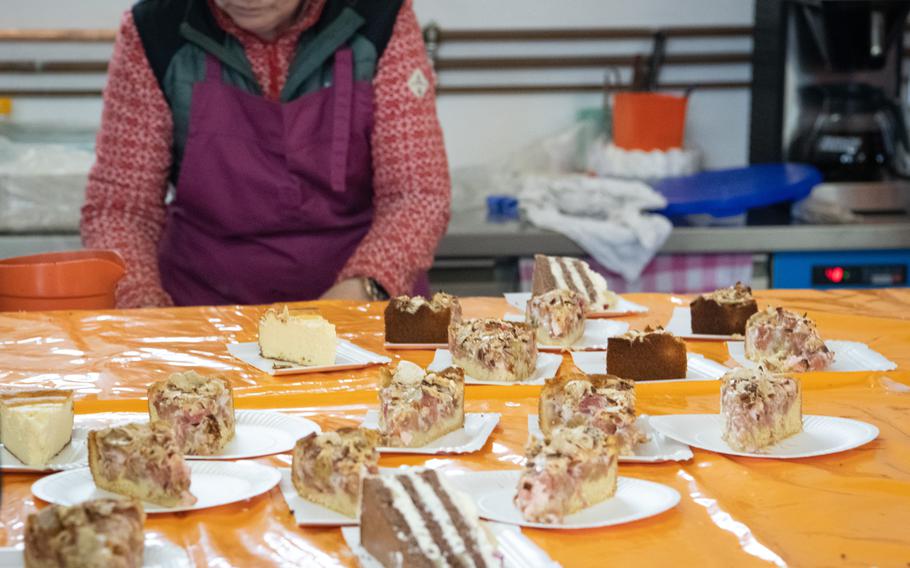
Various cakes are among a range of snacks sold at Zweibruecken’s grass racetrack on the first race day of the year, April 16, 2023. (Phillip Walter Wellman/Stars and Stripes)
Despite the prevalence of gambling and booze, the race days are surprisingly family-friendly. Children’s laughter is regularly heard from the wooden bleachers and the grassy seating area closer to the track. Dogs are welcome, too.
The year’s first race day was held in mid-April. The second is scheduled for July 16.
For those more interested in horse riding than racing, the nearby Zweibruecken State Stud hosts several contests.
It’s one of 10 historical German state studs, or breeding farms, that date back to when horses were essential for transportation, agriculture and the military. Today, the studs are geared toward breeding for equestrian sports.
With only 15 breeding stallions, the Zweibruecken stud is the smallest of the 10 but one of the oldest, established by Duke Christian IV in 1755.
Successive conflicts destroyed its original structures. The present facilities were built after American bombs destroyed much of the town during World War II.
Still, a sense of history is palpable around the grounds, which include a stallion stable, an outdoor riding area and two riding halls, all of which are located on a picturesque tree-lined street near the Schwarzbach tributary.
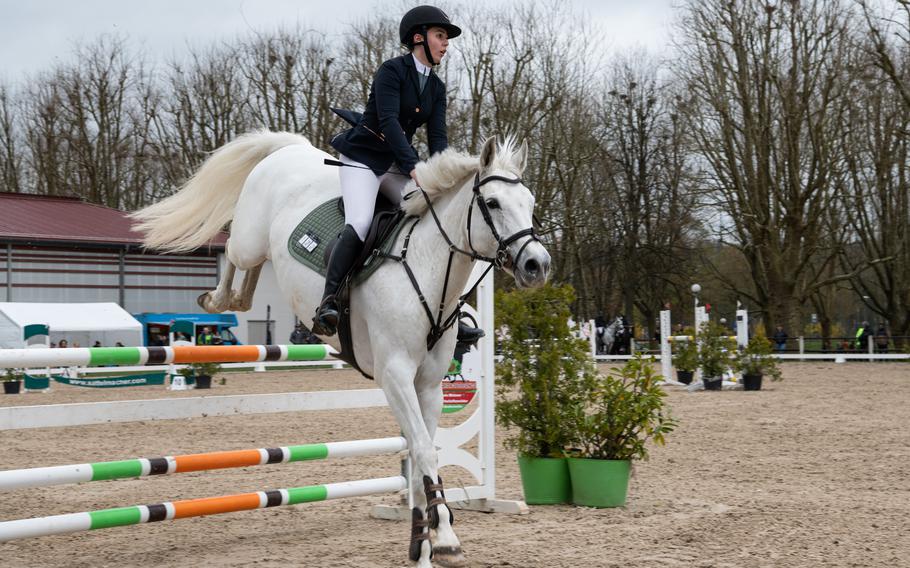
A rider competes at an outdoor jumping tournament at Zweibruecken State Stud, April 16, 2023. (Phillip Walter Wellman/Stars and Stripes)
Five jumping competitions and two dressage contests will be held later this year. A schedule can be found on the stud’s website.
If you attend an outdoor event, be careful when standing under the trees. They’re home to many crow’s nests, and bird droppings are common.
In addition to the competitions, the stud offers guided tours in German. If you want to explore it by yourself, that’s possible too, according to officials, who say visitors are always welcome.
The informational signs throughout the grounds can be read in English with a phone translation app.
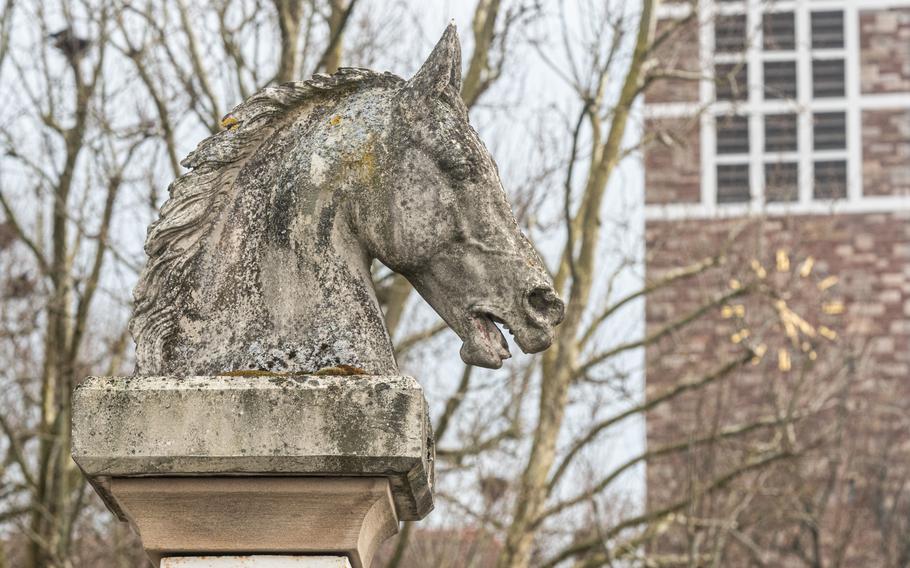
A statue in Zweibruecken, Germany, alludes to the important role horses have played throughout the town’s history. (Phillip Walter Wellman/Stars and Stripes)
Visitors who are interested in learning even more about the town’s horse history can check out the Zweibruecken Stadtmuseum, which is about a 10-minute walk from the racetrack and the stud farm.
From the 1700s until today, this small town has had an outsized affection for horses. Witnessing this tradition firsthand can make for a very interesting day out.
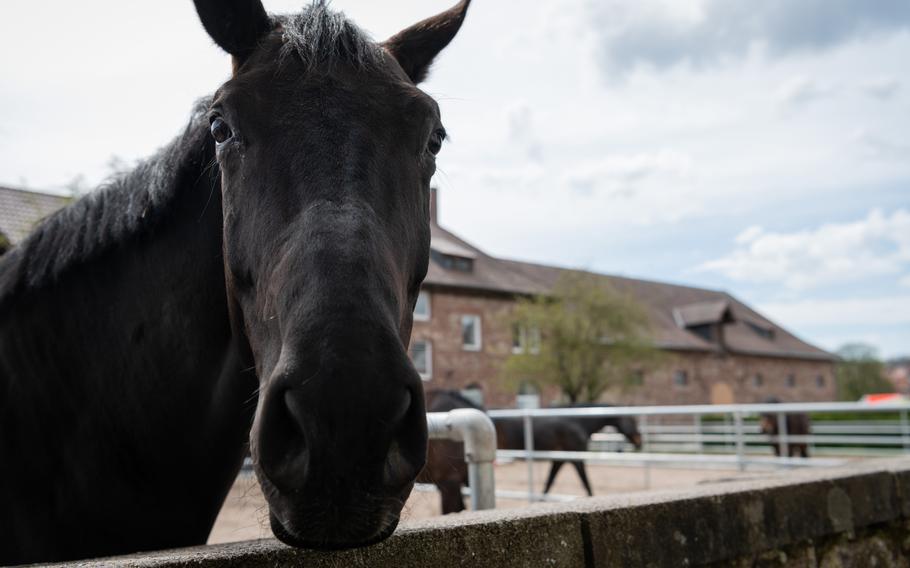
A horse strikes a pose at Zweibruecken State Stud in southwest Germany, April 15, 2023. (Phillip Walter Wellman/Stars and Stripes)
On the QT
Addresses: Zweibruecken Grass Racetrack, Saarlandstrasse, 66482 Zweibruecken; Zweibruecken State Stud, Gutenbergstrasse 16, 66482 Zweibruecken; Zweibruecken Stadtmuseum, Herzogstraße 9-1, 166482 Zweibruecken. Zweibruecken is about a 30-minute drive from Ramstein Air Base. Trains and buses are also available.
Times: For July 16, the racetrack will be open from around 11 a.m. with races expected to be held from about 2 p.m. until 6 p.m. Events at Zweibruecken State Stud are held at various times. The Zweibruecken Stadtmuseum is open Tuesday from 10 a.m. to 6 p.m. and Wednesday to Sunday from 2 to 6 p.m.
Cost: Tickets for the July 16 race day can be purchased in advance or at the door. General admission is 7 euros with discounts for children. Ticket prices vary for events held at the Zweibrucken State Stud. Admission to the Zweibrucken Stadtmuseum is 3 euros for adults, 1.50 euros for students and free for children under 16.
Information: Zweibruecken Racing Club: https://pfaelzischer-rennverein-zweibruecken.de, info@pfaelzischer-rennverein-zweibruecken.de, +49 637-299-5200; Zweibruecken State Stud: https://landgestuet-zweibruecken.de, +49 6849-7779015, info@landgestuet-zweibrucken.de; Zweibruecken Stadtmuseum: stadtmuseum@zweibruecken.de, +49 6332 871-380.